
Browse an alphabetical list of survivors’ oral histories. These interviews describe firsthand accounts and personal experiences during the Holocaust and World War II.
<< Previous | Displaying results 351-360 of 572 for "Oral History" | Next >>
Madeline was born into a middle class family in an area of Czechoslovakia that was annexed by Hungary in 1938-1939. Her father worked out of their home and her mother was a homemaker. Madeline attended high school. In April 1944 her family was forced into a Hungarian ghetto. The family lived in the ghetto for two weeks before being transported to Auschwitz. Madeline and her mother were separated from her father and older brother. Neither her father nor brother survived the war. A week after arriving in…
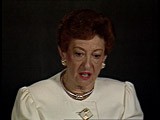
Madeline was born into a middle class family in an area of Czechoslovakia that was annexed by Hungary in 1938-1939. Her father worked out of their home and her mother was a homemaker. Madeline attended high school. In April 1944 her family was forced into a Hungarian ghetto. The family lived in the ghetto for two weeks before being transported to Auschwitz. Madeline and her mother were separated from her father and older brother. Neither her father nor brother survived the war. A week after arriving in…
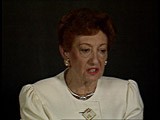
Madeline was born into a middle class family in an area of Czechoslovakia that was annexed by Hungary in 1938-1939. Her father worked out of their home and her mother was a homemaker. Madeline attended high school. In April 1944 her family was forced into a Hungarian ghetto. The family lived in the ghetto for two weeks before being transported to Auschwitz. Madeline and her mother were separated from her father and older brother. Neither her father nor brother survived the war. A week after arriving in…
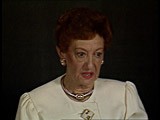
The Germans occupied Tarnow in 1939. In 1940 Martin and his family were forced out of their apartment. During the first massacre of Jews, Martin hid in an attic. The family hid during two more roundups. In May 1943 they were registered, allegedly to be exchanged for German prisoners of war, because Martin's mother was born in the United States. They were taken by train to Krakow and then to the Bergen-Belsen concentration camp. Martin was liberated in 1945 and he moved to the United States in 1947.
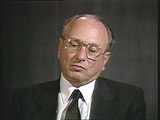
In 1938, Martin's father was imprisoned during Kristallnacht (the "Night of Broken Glass"). Upon the intervention of the family's chauffeur, a gentile, Martin's father was released after three days. The family obtained visas to immigrate to Palestine and left Germany in 1939. Martin aided "illegal" immigrants who defied British restrictions on immigration into Palestine. He was imprisoned by the British in 1947 and forbidden to live in Palestine. He then came to the United States.
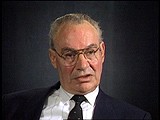
Because he was Jewish, Max could not join the army when World War II began. Instead, he had to perform labor service. In October 1940, Max and his mother were deported to the Gurs camp in France. In Gurs, Max met his future wife, Hanne. In 1941, with the help of the Children's Aid Society (Oeuvre de Secours aux Enfants; OSE), Hanne left the camp. Max followed in July 1942. He escaped to Switzerland through the French Alps and was in internment and refugee camps throughout the war. Hanne reached Switzerland…
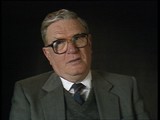
Mayer grew up in a rural town that was occupied by Hungary in 1940. After Germany occupied Hungary in March 1944, Mayer and his family were forced into a ghetto. They were then deported to the Auschwitz camp in Poland, where Mayer's parents and brothers perished. Mayer was selected for forced labor, and was later transferred to a satellite camp of Dachau, in Germany. He was liberated from Dachau in 1945. Sponsored by a children's committee, he immigrated to the United States.
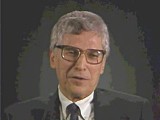
Mayer grew up in a rural town that was occupied by Hungary in 1940. After Germany occupied Hungary in March 1944, Mayer and his family were forced into a ghetto. They were then deported to the Auschwitz camp in Poland, where Mayer's parents and brothers perished. Mayer was selected for forced labor, and was later transferred to a satellite camp of Dachau, in Germany. He was liberated from Dachau in 1945. Sponsored by a children's committee, he immigrated to the United States.
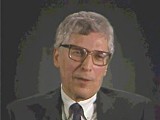
Meri and her family lived in Warsaw at the time of the German invasion of Poland. After the invasion, Meri's father fled to Vilna. She joined him there in December 1939. After the Soviet occupation of Lithuania in 1940, Meri's father obtained transit visas through Japan for himself and Meri. He left for Japan first, using a false identity, and arrived there in February 1941. Meri soon followed him. In Japan, Meri and her father obtained visas to enter the United States. American relief organizations…
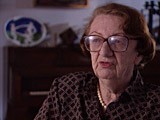
Mieczyslaw and his family were not Jewish. When Germany invaded Poland, Mieczyslaw was working for an organization formed for self-defense against German bombings. Later, he worked for the Polish underground group ZWZ (Zwiazek Walki Zbrojnej; Union for Armed Struggle), which became the AK (Armia Krajowa; Home Army). In 1943, he was conscripted for forced labor at a BMW plant in Warsaw. He escaped, and participated in the Warsaw Polish uprising in August 1944. After the uprising, he left Warsaw and went…
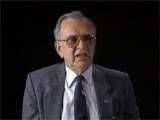
We would like to thank Crown Family Philanthropies, Abe and Ida Cooper Foundation, the Claims Conference, EVZ, and BMF for supporting the ongoing work to create content and resources for the Holocaust Encyclopedia. View the list of donor acknowledgement.